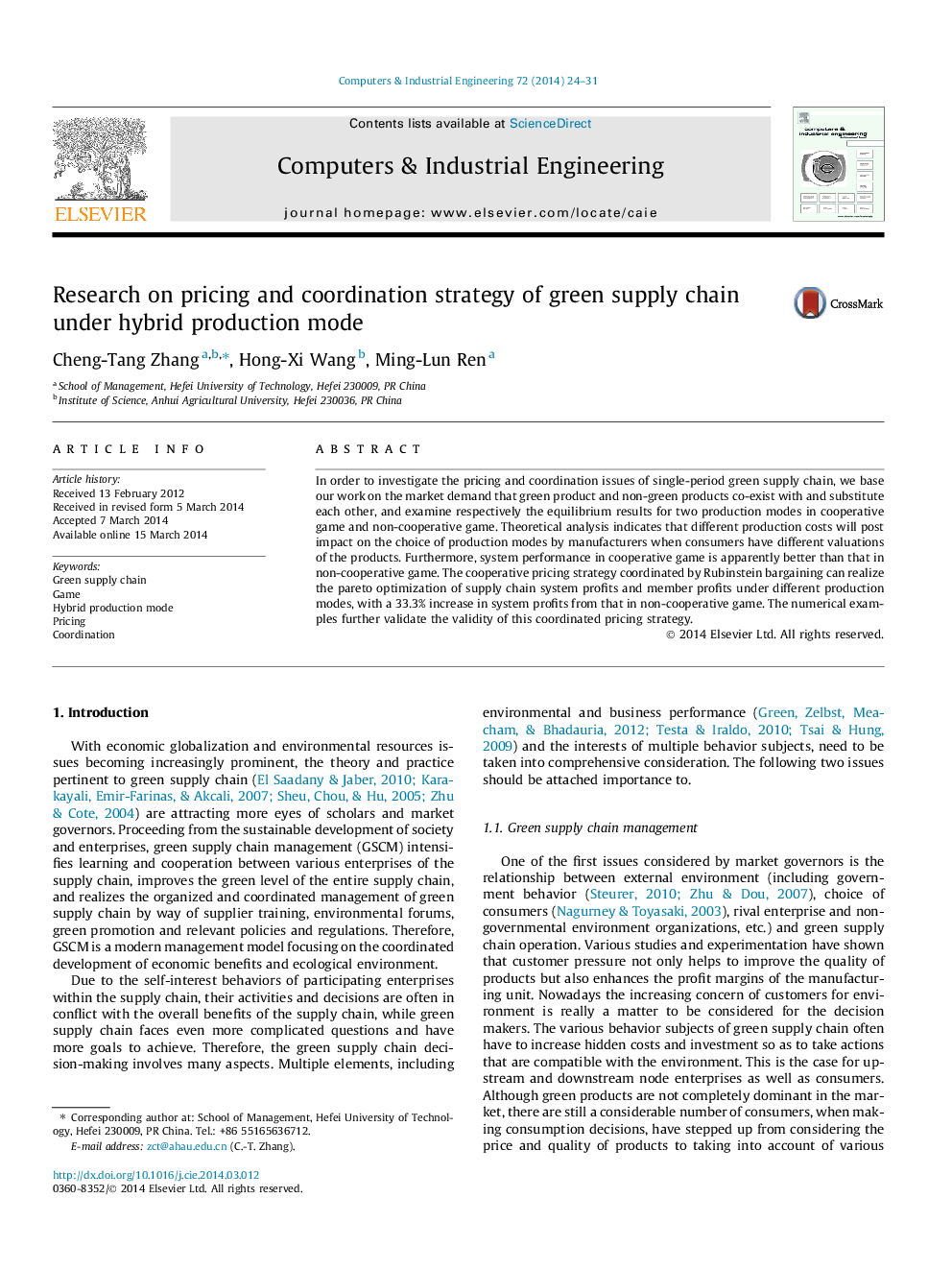| Article ID | Journal | Published Year | Pages | File Type |
|---|---|---|---|---|
| 1134185 | Computers & Industrial Engineering | 2014 | 8 Pages |
•Different production costs will post impact on the choice of production modes.•We examine the equilibrium results for two production modes in cooperative game and non-cooperative game.•The relationships between supply chain system and performance of its members under different production modes.•Rubinstein bargaining can realize the pareto optimization of supply chain system profits.•The numerical examples further validate the validity of this coordinated pricing strategy.
In order to investigate the pricing and coordination issues of single-period green supply chain, we base our work on the market demand that green product and non-green products co-exist with and substitute each other, and examine respectively the equilibrium results for two production modes in cooperative game and non-cooperative game. Theoretical analysis indicates that different production costs will post impact on the choice of production modes by manufacturers when consumers have different valuations of the products. Furthermore, system performance in cooperative game is apparently better than that in non-cooperative game. The cooperative pricing strategy coordinated by Rubinstein bargaining can realize the pareto optimization of supply chain system profits and member profits under different production modes, with a 33.3% increase in system profits from that in non-cooperative game. The numerical examples further validate the validity of this coordinated pricing strategy.
